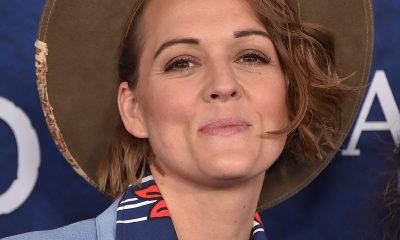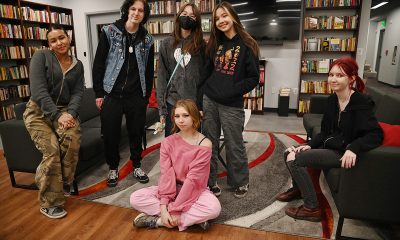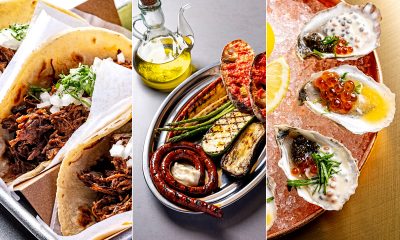Arts & Entertainment
Queen of everything
Boy George chats up his new album, tour and how he got his mojo back
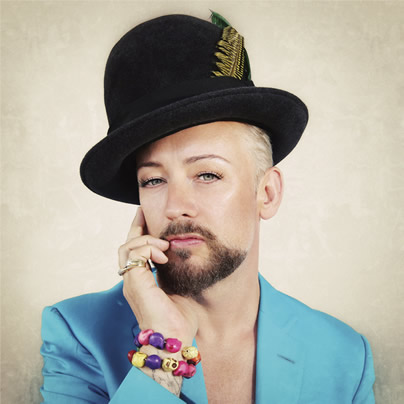
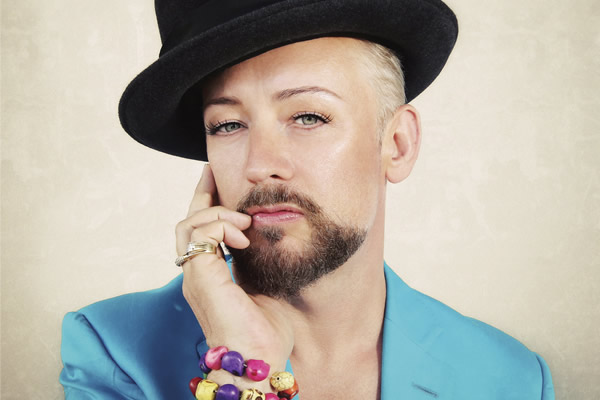
Boy George says in some ways straight acts can experiment with gender more than gay artists. (Photo courtesy High Rise PR)
Boy George
Monday, April 21
9:30 Club
815 V St. N.W.
930.com
$35
Doors open at 7 p.m.
Boy George is the first to acknowledge a cliché.
Getting sober in 2008 and turning 50 two years ago are big “take stock” moments for many and no less so for him.
“It was a huge turning point for me,” he says of his milestone birthday. “I thought, ‘I’ve got to get my shit together, I’ve got to focus, this is important.’ I just felt I’d wasted a lot of time. I looked at myself and thought, ‘God, I’ve done nothing.’ I know I’ve done a lot, I’ve always worked. I’ve grafted and always made money, but a lot of it was pointless because no one knew what I was doing.”
This year, the world is seeing the fruit of those epiphanies. His new album “This Is What I Do” was out in the UK last fall and officially drops in the U.S. with three bonus cuts on March 25. The last several years have seen him release a spate of side projects of various scope, but this is his first full-fledged solo album since 1995’s “Cheapness and Beauty.” He starts a U.S. leg of his tour on April 18 in Philadelphia and plays D.C.’s 9:30 Club on April 21.
During a Saturday afternoon phone chat from his London home last weekend, George — in his ever-delightful, clipped British accent — was chatty, self deprecating, quick to laugh and balked or sidestepped no questions. His comments have been slightly edited for length.
WASHINGTON BLADE: I know you’ve been DJing a lot and working on various things, but how did it work out that you released a new album at this time? Why now?
BOY GEORGE: Well, you know, as you said, I’ve been DJing very happily for the last 25 years and I haven’t really had a record deal for a long time. I suppose I have thought about making records but, you know, I wasn’t sure how I was going to do it. You know, whether I was going to sign with a major label or do something more independent. I also changed management a couple of years ago and wanted to kind of start fresh with a bunch of people that perhaps could kind of see beyond what I was. I think when you’ve had a very, very successful career like I had in the ‘80s, people tend to kind of hope you’re going to try and repeat that. They’re always waiting for you to write the next “Karma Chameleon,” but it’s never going to happen (laughs). Everything I’ve ever done has been kind of instinctual and impulsive and spontaneous and I’ve never really been the kind of artist that can kind of just pull it out of a hat. I have to feel it. … I just felt it was the right time. We discussed the different ways I could go about making a record and I decided to be brave and pay for it myself and own it myself which is a new thing for me, kind of a grown up move. And so far, you know, it’s been the right choice.
BLADE: When was it recorded and how long did it take?
GEORGE: We started about March last year and we did it within about four months. Not solidly. We recorded and then somebody else mixed it. I would say about four to five months last year.
BLADE: How was the reception in the UK last fall?
GEORGE: We’ve had amazing reviews. Comeback of the year, Boy George has finally got his mojo back, you know, blah, blah, blah. Lots of compliments. I mean, much to my surprise really, because I wasn’t really sure what kind of reaction I would get. I wasn’t sure what to expect. So yeah, everything in the UK has been kind of another surprise. England tends to get much more excited about Beyonce than anything that comes from here. It’s like all America, America, hip-hop, Beyonce, Lady Gaga. Nobody cares about Boy George anymore (laughs). That’s why I’m relying on you guys in America.
BLADE: The first single “King of Everything” says “What is the word on the street? Have I lost my crown?” Have you?
GEORGE: Well, the song isn’t just about me, it’s about everyone. It’s about human frailty, people messing up, which is a very human thing, yet it is also about me but it’s about you, it’s about everyone. It’s not literal. The crown is a metaphor. If it was about me, I’d call it “Queen of Everything.”
BLADE: How did the UK tour go last fall?
GEORGE: It was amazing. Very small, very affectionate and the audiences were adorable. They were mostly the kind of hardcore fans, so they were really affectionate.
BLADE: About how long do you usually play?
GEORGE: It depends on the curfew. We do about an hour and a half, maybe two hours. Not quite Bruce Springsteen-length. But we play for as long as we can. When you’re doing a show, sometimes if the mood is right, you can keep it going, depending on the audience reaction, really. But obviously some venues have a curfew so you can’t play longer than a certain time.
BLADE: About how much of the new album do you work into the set list?
GEORGE: We kind of try and balance it with things people know, some things people haven’t heard, some new stuff, some old stuff. You know, I’ve been doing this a while and one thing I’ve continued to do is to play live. At the end, you have to figure out a way to reach the audience.
BLADE: How does the new stuff sit with the Culture Club hits? Is it hard to build a set list that flows?
GEORGE: No, I don’t think it’s difficult. With the things people know, you’re always in a very safe area. If you sing a song that’s been a hit, that’s very safe so no, I wouldn’t say it’s difficult. There are certain songs that I don’t do. Obviously with that kind of a back catalogue, there are some songs you grow into and some that you say, “OK, this doesn’t really speak to who I am anymore.” So you kind of try to mix it up and keep it interesting, not just for the audience but also for yourself. You don’t want it to be a kind of robotic show that’s the same every night. Myself and John, who plays guitar in my band, we have sections where we do acoustic stuff and we can do all sorts of things there and change things around and do new things. That helps keep the show exciting.
BLADE: Do you still have the goatee?
GEORGE: I do.
BLADE: Your look at present seems more kind of genderfuck than androgynous. Just a whim or do you feel more comfortable with mixing in masculine elements than you have in previous years?
GEORGE: I just had some time off and didn’t shave for a few days and kind of looked at myself and thought, “Oh, I quite like this look.” It’s not something I really sat down and thought about. I just kind of grew my beard when I was on break and other people seemed to like it and other people didn’t like it, which made me want to keep it more. I might get bored with it at some point but I’m loving it at the moment.
BLADE: Lots of pop stars have played around with androgynous looks — I’m thinking of David Bowie and Prince — and the public seems to accept them as straight. You were always pretty much out for the most part. Do you feel the public overall has pretty good gaydar?
GEORGE: I don’t know really. I think there are some audiences that don’t really want to know, depending on the artist. Sometimes people have this kind of spare-me-the-details kind of attitude. I think it’s more about what kind of artist you are and in what ways you want to affect the audience. That’s the starting point for me. It’s about what’s going to make you happy, do you know what I mean? How much of yourself you reveal. I think it’s much easier for somebody straight to play around with these boundaries because they’re not being defined by their sexuality. If you’re gay, then you’re gay and you have to strike a sort of balance so people don’t feel you’re flaunting it in their face or preaching, you know. I think as a gay artist, you have to walk a much finer line than, say, somebody who’s just having a flirtation with this. I mean, it’s much easier for someone straight like Macklemore to sing a song with the word gay in it. A few years ago I made an album called “Cheapness and Beauty” and there was a song called “Same Thing in Reverse” and I was told categorically this will never, ever get played on the radio because I used the phrase “kamikaze queer” in it. You can get away with more when you’re straight.
BLADE: You’ve talked about making a new album with Culture Club this year. Is that still in the cards?
GEORGE: Yes, we are looking at the possibility of recording some stuff this year but at the moment, we’re kind of still in the writing stages. We’ve had some great sessions and we really did enjoy ourselves and it was a really nice experience. Everybody came away feeling really good about it and, you know, we’re going to see what we can do next.
BLADE: It’s so great to see you looking so good, sounding so good and apparently really thriving. A few of your contemporaries who were also huge in the ‘80s haven’t fared as well. What did you think and feel when you heard Michael Jackson and Whitney Houston had died?
GEORGE: Oh my God, you know, I mean Michael Jackson. And I loved Whitney Houston like so much. I was just a massive, massive fan. I loved her voice. And Michael Jackson, you know, I was at home when it happened and I just remember thinking, “Oh my God, this is so sad.” You know, he was such an incredible artist. For the last few years of his life, I felt like there was so much pressure on him and he looked world-weary every time I saw him. I felt such sadness for him. I was just so sad when he died and Whitney, what a shame for both of them. They were great, great artists. I was a huge Michael Jackson fan and a huge Whitney Houston fan and I’m not ashamed to say I did cry. I thought it was really sad.
BLADE: Conversely does it make you happy when you see some of those artists still doing well today. Like Cyndi Lauper, for instance, just won a Tony.
GEORGE: I’m always happy when anyone does well. That’s a measure of maturity, I think. Cyndi’s a friend. I haven’t seen her for a while, but she’s a great girl and, you know, yeah, I think when you see your contemporaries doing well, it gives you hope. You think, “OK, anything’s possible.”
BLADE: You recognized early on that fame was fickle and I remember you telling Johnny Carson you knew staying at that level at the height of Culture Club was not sustainable and that you envisioned yourself eventually writing songs for other artists and doing other things. How has that played out differently than you thought it might have when you were 22?
GEORGE: Oh, I think when you’re 22 you really think you know it all, don’t you? (laughs) You listen back to the things you say and you think, “Oh my God, you really thought you knew it all.” And I think at that age, you’re still learning so much. I feel very fortunate to still be doing what I love.
BLADE: Yes, but it struck me as rather insightful that you realized even then that pop careers always ebb and flow.
GEORGE: It may be one of the reasons I’ve done other things. I’ve never wanted to just rest on my laurels. I don’t have the idea of trying to kind of repeat something. So in a way, DJing has been an incredible second career for me. When I first started it, my manager at the time thought it was a really bad idea and told me I shouldn’t do it. But again, I just followed my instincts and it was the right thing to do because it allowed me to avoid nostalgia. I’ve been able to be involved in a quite progressive industry and not have to worry about what I used to be or, you know, the ‘80s, and all that stuff. So I’m really happy that I made that decision. I like to work. I’m a worker and I’m always up for a new challenge.
BLADE: Back in the early ‘90s, the theme from “Crying Game” was this huge out-of-nowhere smash radio hit in the U.S. Do you still sing it live?
GEORGE: From time to time. Actually, maybe that’s a good one to put into the set in America. I’ll write that down.
BLADE: Is it harder to break a song in the U.S. now than it was years ago? Not even with yourself, necessarily, but just in general?
GEORGE: I don’t know what it’s like now because I’m not involved in that kind of trying to have hits, you know. I think past a certain age, you’re just kind of marginalized in the world anyway.
BLADE: Does that bring with it artistic freedom?
GEORGE: I think it does. Once you kind of get over the shock and the horror that certain radio stations won’t play your new stuff no matter how good you are, I mean that’s really the bonkers thing. I’m not sure it’s as bad in America as it is here, but certainly here, it’s just ridiculous. But it kind of remains to be seen. It’s a very different landscape now. Making records is very different and the way we promote ourselves is very different. In a way I’m kind of starting again, so I’ll let you know.
BLADE: How many of the players from the album do you tour with?
GEORGE: All of them.
BLADE: The album has such a lush sound — is that easy to duplicate on stage?
GEORGE: Well, we have a nine-piece band that we’re touring with at great expense so we probably won’t be making any money. But I think it’s really important to have a great band and we had a great time in the UK last year. We do England and Europe then we go to America. We’ll be steaming by the time we get to the states.
BLADE: How long have you been a vegan?
GEORGE: I’m not strictly a vegan but I’m very conscious about what I eat and I don’t eat a lot of dairy, though I do eat some cheeses. I’ve been on a very particular metabolic plan diet for two years that’s all about your hormonal reaction to certain foods so some of the stuff I don’t eat is very random — like pumpkin, kale, onion or lemon. It’s very individual and different for each person. It’s been sort of life changing for me but I don’t really call myself anything because then you eat a piece of cheese and everybody freaks out.
BLADE: And you run too?
GEORGE: Well, I exercise.
BLADE: Is the U.S. version of the album the same?
GEORGE: No, it’s got more songs. I wrote a song called “Turn On a Little Light For Me,” which I wrote especially for the American album and which I love. We were asked by the label to provide some more stuff and I had a couple covers — “Video Games” by Lana Del Rey and the Bob Dylan song “Make You Feel My Love,” but I didn’t just want covers as the bonus content so I wrote a new song too. It’s about hope. A lovely kind of little Dylan-esque kind of song.
BLADE: Thanks for your time.
GEORGE: Thank you.
Theater
‘Amm(i)gone’ explores family, queerness, and faith
A ‘fully autobiographical’ work from out artist Adil Mansoor

‘Amm(i)gone’
Thorough May 12
Woolly Mammoth Theatre
641 D St., N.W.
$60-$70
Woollymammoth.net
“Fully and utterly autobiographical.” That’s how Adil Mansoor describes “Amm(i)gone,” his one-man work currently playing at Woolly Mammoth Theatre.
Both created and performed by out artist Mansoor, it’s his story about inviting his Pakistani mother to translate Sophocles’s Greek tragedy “Antigone” into Urdu. Throughout the journey, there’s an exploration of family, queerness, and faith,as well as references to teachings from the Quran, and audio conversations with his Muslim mother.
Mansoor, 38, grew up in the suburbs of Chicago and is now based in Pittsburgh where he’s a busy theater maker. He’s also the founding member of Pittsburgh’s Hatch Arts Collective and the former artistic director of Dreams of Hope, an LGBTQ youth arts organization.
WASHINGTON BLADE: What spurred you to create “Amm(i)gone”?
ADIL MANSOOR: I was reading a translation of “Antigone” a few years back and found myself emotionally overwhelmed. A Theban princess buries her brother knowing it will cost her, her own life. It’s about a person for whom all aspirations are in the afterlife. And what does that do to the living when all of your hopes and dreams have to be reserved for the afterlife?
I found grant funding to pay my mom to do the translation. I wanted to engage in learning. I wanted to share theater but especially this ancient tragedy. My mother appreciated the characters were struggling between loving one another and their beliefs.
BLADE: Are you more director than actor?
MANSOOR: I’m primarily a director with an MFA in directing from Carnegie Mellon. I wrote, directed, and performed in this show, and had been working on it for four years. I’ve done different versions including Zoom. Woolly’s is a new production with the same team who’ve been involved since the beginning.
I love solo performance. I’ve produced and now teach solo performance and believe in its power. And I definitely lean toward “performance” and I haven’t “acted” since I was in college. I feel good on stage. I was a tour guide and do a lot of public speaking. I enjoy the attention.
BLADE: Describe your mom.
MANSOOR: My mom is a wonderfully devout Muslim, single mother, social worker who discovered my queerness on Google. And she prays for me.
She and I are similar, the way we look at things, the way we laugh. But different too. And those are among the questions I ask in this show. Our relationship is both beautiful and complicated.
BLADE: So, you weren’t exactly hiding your sexuality?
MANSOOR: In my mid-20s, I took time to talk with friends about our being queer with relation to our careers. My sexuality is essential to the work. As the artistic director at Dreams of Hope, part of the work was to model what it means to be public. If I’m in a room with queer and trans teenagers, part of what I’m doing is modeling queer adulthood. The way they see me in the world is part of what I’m putting out there. And I want that to be expansive and full.
So much of my work involves fundraising and being a face in schools. Being out is about making safe space for queer young folks.
BLADE: Have you encountered much Islamophobia?
MANSOOR: When 9/11 happened, I was a sophomore in high school, so yes. I faced a lot then and now. I’ve been egged on the street in the last four months. I see it in the classroom. It shows up in all sorts of ways.
BLADE: What prompted you to lead your creative life in Pittsburgh?
MANSOOR: I’ve been here for 14 years. I breathe with ease in Pittsburgh. The hills and the valleys and the rust of the city do something to me. It’s beautiful, it’ affordable, and there is support for local artists. There’s a lot of opportunity.
Still, the plan was to move to New York in September of 2020 but that was cancelled. Then the pandemic showed me that I could live in Pittsburgh and still have a nationally viable career.
BLADE: What are you trying to achieve with “Amm(i)gone”?
MANSOOR: What I’m sharing in the show is so very specific but I hear people from other backgrounds say I totally see my mom in that. My partner is Catholic and we share so much in relation to this.
I hope the work is embracing the fullness of queerness and how means so many things. And I hope the show makes audiences want to call their parents or squeeze their partners.
Out & About
The Rare Book Fair is coming to D.C.
Over 35 antiquarian booksellers from across the country to attend
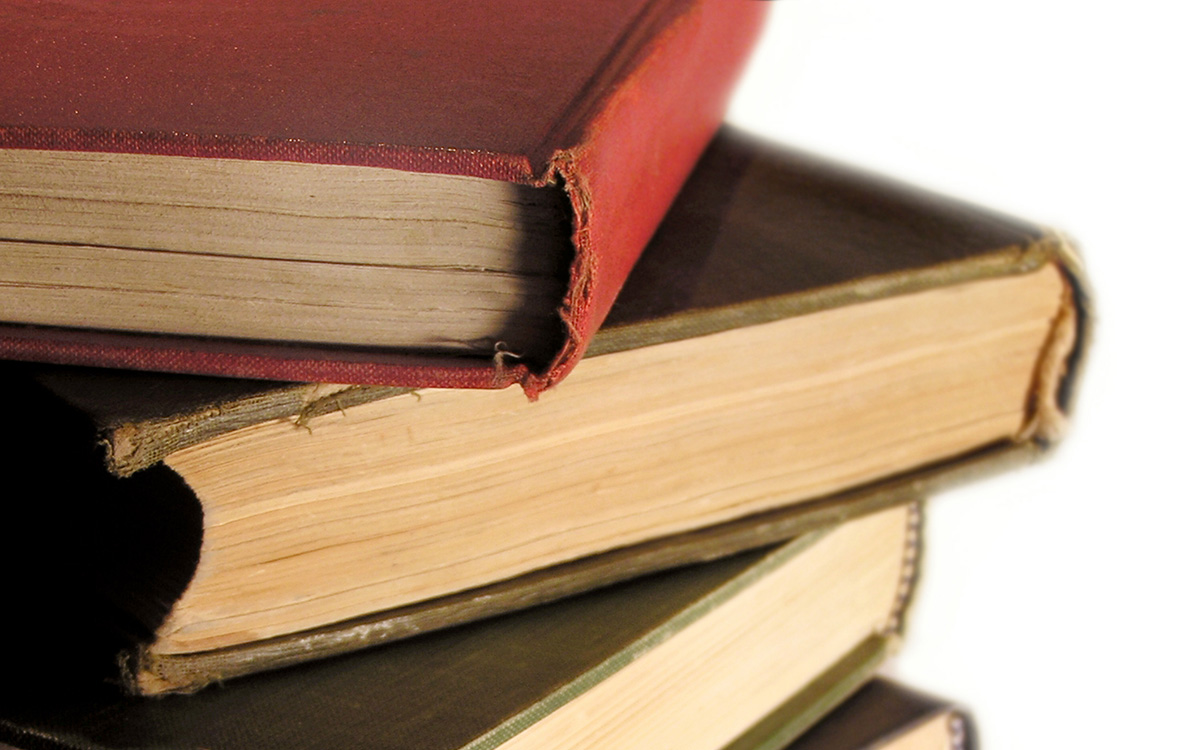
The Capital Rare Book Fair will bring more than 35 antiquarian booksellers from across the country to D.C. from Friday, May 3 to Sunday, May 5 at the historic University Club at 1135 16th St., N.W.
This year, the fair will take over two floors in the illustrious mansion on 16th Street and showcase thousands of beautiful, notable, and rare books, maps, and historic documents from around the globe. Exceptional examples that will be offered include leaf 27 of a 40-leaf xylographic Biblia pauperum, a picture Bible from 1465 for $85,000 from Bruce McKittrick Rare Books, among many other intriguing selections.
Tickets are $50 and more information is available on the event’s website.

Friday, April 19
Center Aging Friday Tea Time will be at 2 p.m. on Zoom. This is a social hour for older LGBTQ adults. Guests are encouraged to bring a beverage of choice. For more information, email [email protected].
Go Gay DC will host “Drag Pageant” at 8 p.m. at Freddie’s Beach Bar and Restaurant. Net proceeds from this event will benefit EQUALITY NoVa, the local nonprofit organization dedicated to advancing equality in Northern Virginia. Attendance is free and more details are available on Eventbrite.
Saturday, April 20
LGBTQ People of Color Support Group will be at 1 p.m. on Zoom. This peer support group is an outlet for LGBTQ People of Color to come together and talk about anything affecting them in a space that strives to be safe and judgment free. For more details, visit thedccenter.org/poc or facebook.com/centerpoc.
Go Gay DC will host “LGBTQ+ Brunch” at 11 a.m. at Freddie’s Beach Bar & Restaurant. This fun weekly event brings the DMV area LGBTQ community, including allies, together for delicious food and conversation. Attendance is free and more details are available on Eventbrite.
Sunday, April 21
Go Gay DC will host “LGBTQ+ Dinner” at 7 p.m. at Federico Ristorante Italiano. Attendance is free and more details are available on Eventbrite.
AfroCode DC will be at 4 p.m. at Decades DC. This event will be an experience of non-stop music, dancing, and good vibes and a crossover of genres and a fusion of cultures. Tickets cost $40 and can be purchased on Eventbrite.
Monday, April 22
Center Aging: Monday Coffee & Conversation will be at 10 a.m. on Zoom. This is a social hour for older LGBTQ adults. Guests are encouraged to bring a beverage of their choice. For more details, email [email protected].
Tuesday, April 23
Pride on the Patio Events will host “LGBTQ Social Mixer” at 5:30 p.m. at Showroom. Dress is casual, fancy, or comfortable. Guests are encouraged to bring their most authentic self to chat, laugh, and get a little crazy. Admission is free and more details are on Eventbrite.
Genderqueer DC will be at 7 p.m. on Zoom. This is a support group for people who identify outside of the gender binary. Whether you’re bigender, agender, genderfluid, or just know that you’re not 100% cis. For more details, visit genderqueerdc.org or Facebook.
Wednesday, April 24
Job Club will be at 6 p.m. on Zoom. This is a weekly job support program to help job entrants and seekers, including the long-term unemployed, improve self-confidence, motivation, resilience and productivity for effective job searches and networking — allowing participants to move away from being merely “applicants” toward being “candidates.” For more information, email [email protected] or visit [email protected].
Asexual and Aromantic Group will be at 7 p.m. on Zoom. This is a space where people who are questioning this aspect of their identity or those who identify as asexual and/or aromantic can come together, share stories and experiences, and discuss various topics. For more details, email [email protected].
Thursday, April 25
The DC Center’s Fresh Produce Program will be held all day at the DC Center for the LGBT Community. People will be informed on Wednesday at 5:00 pm if they are picked to receive a produce box. No proof of residency or income is required. For more information, email [email protected] or call 202-682-2245.
Virtual Yoga with Charles M. will be at 7 p.m. on Zoom. This is a free weekly class focusing on yoga, breath work, and meditation. For more details, visit the DC Center for the LGBT Community’s website.
-

 District of Columbia2 days ago
District of Columbia2 days agoReenactment of first gay rights picket at White House draws interest of tourists
-

 District of Columbia2 days ago
District of Columbia2 days agoNew D.C. LGBTQ+ bar Crush set to open April 19
-

 Arizona2 days ago
Arizona2 days agoAriz. governor vetoes anti-transgender, Ten Commandments bill
-

 Africa4 days ago
Africa4 days agoUgandan activists appeal ruling that upheld Anti-Homosexuality Act

